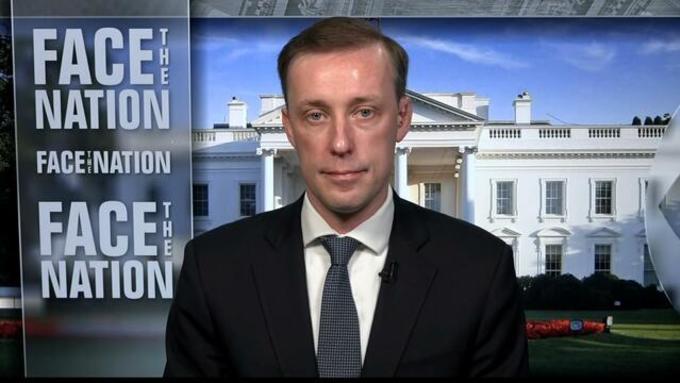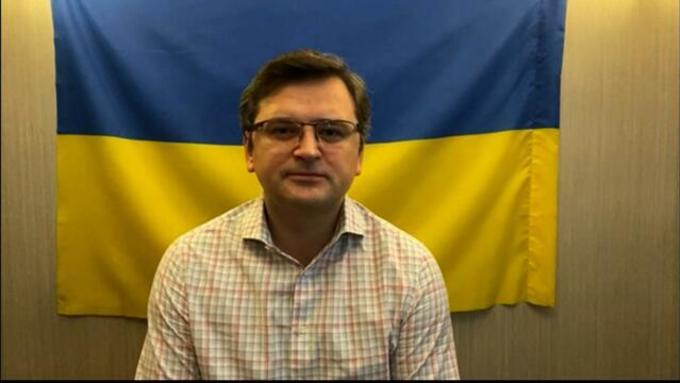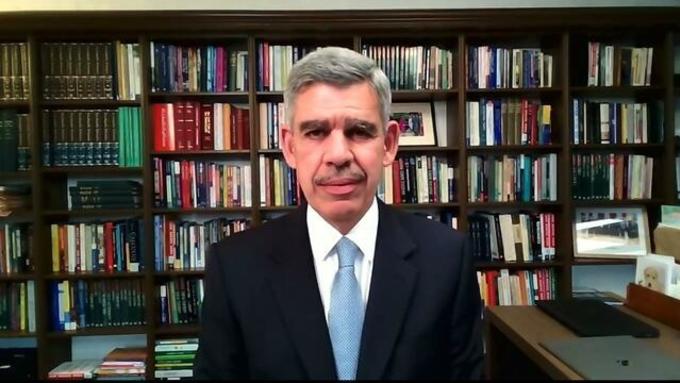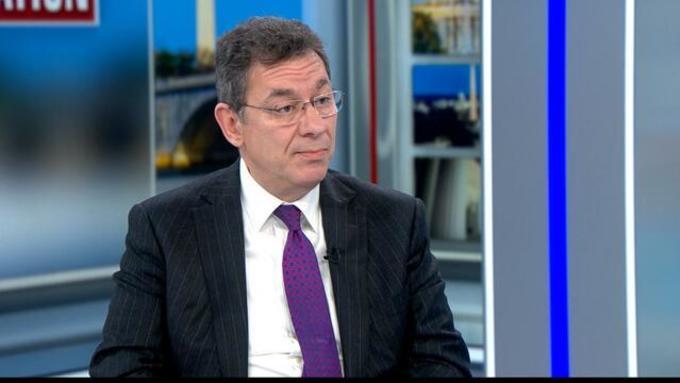| "President Putin definitely believes that Ukraine has no right to exist as a country. He doesn't recognize our identity. He says we are Russians, we are not Ukrainians, we are the same, which is obviously not the case." - Foreign Minister Dmytro Kuleba on Russian President Putin's actions toward Ukrainians Welcome to the "Face the Nation" Five at Five newsletter. Scroll down for your five takeaways from today's broadcast of "Face the Nation with Margaret Brennan" on CBS. Did someone forward you this? Sign-up at cbsnews.com/email. 1. Sullivan: Death of American journalist in Ukraine "shocking and horrifying"  White House national security adviser Jake Sullivan condemned Russia for what he called the "shocking and horrifying" killing of an American journalist in Ukraine by Russian forces and vowed the U.S. would respond with "appropriate consequences" once the Biden administration obtained more information about the death. What we asked: I do want to ask you about these reports that a U.S. journalist has been killed in Ukraine by Russian forces. Do we know what the consequence would be for Russia killing an American? What Sullivan said: "Well, this is obviously shocking and horrifying, and I've just learned about it as I came on to air here, so I will be consulting with my colleagues, we'll be consulting with the Ukrainians to determine how this happened and then to measure and execute appropriate consequences as a result of it. I will just say that this is part and parcel of what has been a brazen aggression on the part of the Russians where they have targeted civilians, they have targeted hospitals, they have targeted places of worship and they have targeted journalists." Why it matters: The head of Kyiv's regional police force, Andriy Nebytov, said Sunday that an American journalist, believed to be Brent Renaud, was killed and a colleague was injured by Russian forces in Irpin, Ukraine. The State Department confirmed Renaud's death in a statement later Sunday, saying it is "offering all possible consular assistance" to his family. 2. Ukrainian foreign minister: Fighter jets are the "highest demand"  Ukrainian Foreign Minister Dmytro Kuleba on Sunday continued to urge the United States and Western allies to give fighter jets to Ukraine to help bolster its defenses against Russia's attacks. What we asked: What specific types of weapons do you need? What kind of sophisticated systems? What Kuleba said: "Well, the highest demand is in planes, in fighting jets, in attack aircraft because unfortunately, the air force power of Russia and Ukraine are uncomparable. And yes, it's true that we shoot them down, but they also- they also shoot us down. And if we lose control over the sky, we cannot prevent two things from happening. We cannot prevent- we cannot stop Russian bombers, destroy our cities and killing civilians. And we cannot destroy Russian columns heading towards our big cities on the roads. To achieve these two purposes, we need more planes. This is the- the most pressing issue. We- frankly speaking, we don't understand all the explanations that we are given, why we should not be- why we should not be given those planes and we will continue putting pressure on our- and from all corners and requesting this assistance from the United States and other partners." Why it matters: The U.S. has sent Ukraine more than $1.2 billion in security assistance since January 2021. On Saturday, President Biden authorized an additional $200 million in small arms and equipment for Ukraine. 3. Allianz chief economic officer: Seven rate hikes would lead to recession  Mohamed El-Erian, chief economic adviser to Allianz, told Margaret Brennan on Sunday that he doesn't think the economy could support seven rate hikes. What we asked: You're expecting what kind of rate hike, and what is the risk of recession at this point? Goldman Sachs, I know they upped their forecast to at least a 20% chance of a recession in the United States. What El-Erian said: "Yes, and they are thinking that we're going to get seven hikes this year. I don't think we'll get seven hikes. I don't think this economy can support seven hikes, and if we do get seven hikes, we will go into recession. That's the cost of being late. I suspect that what we'll hear on Wednesday, Margaret, is a 25 basis point rate hike. We will hear that more on the way, and we will hear that they will all also contract what has become a nine trillion balance sheet. We are in this absurd situation that last week, when we got the 7.9% inflation rate, the Fed was still putting liquidity into this economy. That just gives you a feel for how misaligned policy has been." Why it matters: With a combination of supply chain issues connected to a pandemic, the war in Ukraine, and the ever-present possibility of another COVID variant, inflation is expected to significantly impact the American economy this year, as Treasury Secretary Janet Yellen suggested this week. 4. Pfizer CEO says a fourth COVID vaccine dose is "necessary"  Pfizer CEO Dr. Albert Bourla explained Sunday why he believes there is a need for a fourth COVID vaccine dose. What we asked: So you've seen some of that data on a fourth dose, a second booster shot. You think it will be necessary? What Bourla said: "Right now, the way that we have seen, it is necessary, a fourth boost right now. The protection that you are getting from the third, it is good enough, actually quite good for hospitalizations and deaths. It's not that good against infections, but doesn't last very long. But we are just submitting those data to the FDA and then we will see what the experts also will say outside Pfizer." Why it matters: Bourla said this week that his company is planning to submit data on a fourth COVID vaccine dose, as the nation begins to relax many COVID restrictions. 5. CBS News Poll: Americans support Russian sanctions even if gas prices increase  Americans have overwhelming support for sanctions on Russia's oil and gas, and the willingness to pay more as a result, according to the latest CBS News poll. That support is driven by a desire to help Ukraine and punish Russia, the poll found. Some economic pain now might be seen as a hedge against bigger problems later, if it stops Russia, because Americans largely believe Russia has designs on invading other countries beyond Ukraine. People who think so are even more likely to support oil sanctions. Punishing Russia economically still finds favor over military options. For instance, even though many initially say they would back a no-fly zone, support for it drops off once Americans consider that it could be taken as an act of war and lead to a direct U.S.-Russia conflict. |
No comments:
Post a Comment